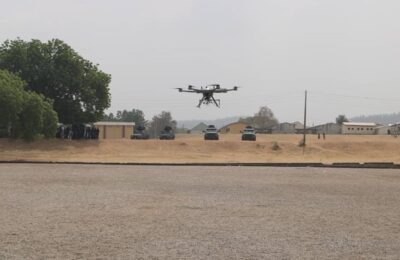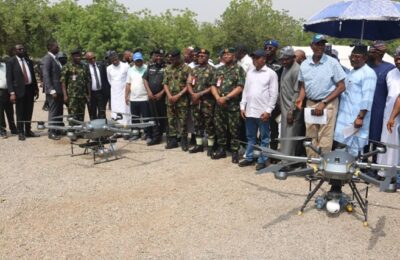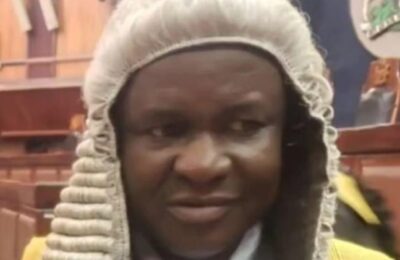Politics flow the blood of the average Kogi indigene. Kogi State is undoubtedly one of the most politically-conscious states in Nigeria. The average youth in Kogi state is a comrade while the average adult is a ‘political leader’ in his/her own catchment area.
Anywhere you live in the world, Kogi people cannot be anonymous. The average Kogi indigene is either very popular or notorious; timidity and fear are alien to our culture.
Also, no matter the professional calling, cleric, academia, business person, every Kogi indigene, in whatever location they find themselves, has political inclination without apologies.
For Kogi indigenes who are domiciled within the four corners of Kogi State, politics is a day-to-day activity. 8 out of 10 unemployed youth you meet will confidently tell you they are Politicians. In Kogi, we ‘drink and eat politics’. This situation has made the political arena in Kogi State a congested one. The competition to get a political office is stiff and the struggle to get close to a political officer holder is stiffer!
I make bold to say that Kogi state witness more governorship aspirants than any other state in Nigeria every election year. Do not forget that all Kogi indigenes are ‘Leaders’.
In the build-up to the 2011 general elections, dozens of well-educated and illustrious sons and daughters of Kogi State signified their intention to rule the state as Governor. To make matters good, the incumbent governor then, Alhaji Ibrahim Idris was rounding off his 2nd term in office and ineligible to re-contest after serving two terms.
The major political parties in the state at the time were Peoples Democratic Party (PDP), now defunct All Nigeria Peoples Party (ANPP) and defunct Action Congress of Nigeria (ACN). ANPP produced a former governor, Prince Abubakar Audu as governorship candidate while PDP produced an ex-banker, Alhaji Jubrin Isa (Echocho) as flagbearer. However, due to a court ruling, the tenure of incumbent Ibrahim Idris was extended and governorship elections postponed. This postponement will later lead to the worst internal fighting in the history of PDP in Kogi State.
After the postponement, frontline aspirant, who many believed had won the January 2011 PDP governorship primaries before the governor performed ‘electoral magic’ that produced Echocho, Alhaji Isah Kutepa started agitating for a re-run of PDP governorship primaries, but the sitting governor Ibrahim Idris and his core associates insisted that the primaries that produced Echocho will stand. Typical of the Kogi turbo-charged political environment, politicians have started lobbying Echocho for appointments. It was common knowledge then that the fledging Echocho camp already had a list of ‘awaiting commissioners’ popularly referred to then as ‘Echocho Kitchen Cabinet’.
Out of the blues, the PDP announced that there will be a re-run governorship primaries in Kogi State. It came as a surprise to many! Kutepa re-loaded his political arsenal and started mobilizing for victory. The Echocho camp kicked fruitlessly against the planned re-run primaries slated for September 2011, eight months after the first primaries. When it dawn of them that the re-run will hold, Echocho bought nomination forms again and started scheming to replicate his January victory again in September.
However, between January and September 2011, something strange seem to have struck incumbent governor Ibrahim Idris as he withdrew his support for Echocho at the very last minute. Ibrahim Idris decided to throw his weight behind a new entrant, Captain Idris Wada. The primaries eventually produced Wada as PDP governorship candidate, who went ahead to win for the 2011 election in Kogi State.
Wada’s victory left many politicians ‘wounded’ in Kogi State PDP. The casualty list included Jubrin Isa Echocho, his running mate, Clarence Olafemi (Obembe), Senator Dangana (later removed by Appeal Court and replaced with incumbent Senator Attai Aidoko Ali), the then Speaker of Kogi State House of Assembly, Hon Abdullahi Bello and a host of others. While some members of the ‘Echocho Kitchen Cabinet’ shifted loyalty immediately, most members of the group found it hard to reconcile with realities on ground. They prosecuted a protracted legal tussle all through to Supreme Court in a bid to unseat Wada but failed at all stages of litigation.
The September 2011 PDP re-run primaries that was won by Wada has since been his major offence. A large number of politicians lost out and may never forgive Wada for this ‘Great Sin’.
Most members of the Echocho group have remained consistent critics and traducers of Idris Wada. They formed the bulk of the group referred to as Kogi Elders that have been at daggers drawn with Wada.
Wada would have been a good man to them if he had not come in to upset their political calculations. This is seen as a grievous sin that may never be forgiven.
…to be continued.
– Abidemi Olalekan, Lokoja




